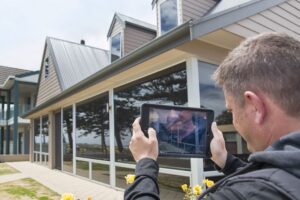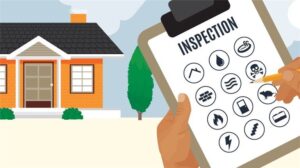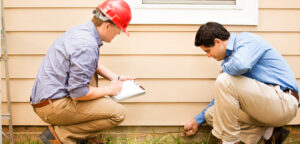Commercial property prices can be higher than residential properties, so getting a property inspection is essential. In addition, a commercial Property inspection cost will ensure you don’t end up buying a money pit. A commercial property inspector’s cost will differ from a home inspector’s cost. The rule followed for commercial buildings is to charge the average price per square foot for a commercial property Inspection. On the other hand, a home inspection cost is less and not done per sq foot. Before knowing more about the cost of commercial property inspection in Dallas, let’s see what is included in commercial property inspection.

What is a Commercial Property Inspection?
Commercial properties are usually buildings used for business and making money. The traffic and flow of people in them can vary considerably depending on the type and function of a commercial building. For example, a commercial building used for an office may have a consistent number of people coming and leaving for work each day, while a hospital may see varying human traffic. More people use commercial properties, and their lives are at stake, making inspections for commercial buildings crucial.
What Are The Different Types Of Inspections?
Whether a commercial or a residential inspection, it will be further divided into standard and advanced inspections; a standard inspection checklist has been shared above. If the inspector feels there is a need to further inspect some problem during a routine inspection, he will do an advanced inspection that will include:
- Mold inspections
- Radon Inspections
- Air Quality Testing
- Termite Inspections
- Electromagnetic Field (EMF) Inspection
- Pool & Spa Inspections

Ways to Determine the Cost of Commercial Building Inspection
There are different methods used to determine the cost of a commercial building inspection. In the end, it depends on the inspection company what options they provide to the customer. Possible ways are the following;
Percentage of Listing Price
In this format, the pricing for inspection of a commercial building is decided according to the price the building is being sold. However, in such a way the inspection cost can go much higher.
Flat-Fee for Inspection
According to the type of building and the components present in the building which are to be inspected, the inspector may go with a flat-fee for his services. However, most of the notable inspection companies discourage this method.
Pricing Based on Area
It is the most popular method that commercial inspectors follow. Their inspection fee is based on the area of the building. The cost of commercial inspection sticks between 16 to 30 cents per square foot. It means the inspection cost for a commercial building with an area of 5,000 square feet would be anywhere between $800 to $1,500.
Hourly Rates for Inspection
Some inspectors charge according to the time they need to provide for the inspection. The average hourly rate for inspection of a commercial property is around $100 per hour.

Commercial Properties That Need Inspection
A commercial property inspection entails doing a thorough inspection of the commercial property; an inspector makes observations and reports the findings along with solutions and alternatives if problems are present. All commercial properties like those listed below require inspection:
- Mall Strips
- Office Blocks
- School Buildings
- Restaurants
- Child Care Facilities
- Hospitals
- Any building with a functional business
Checklist for Inspection of Commercial Property
A commercial real estate inspector will follow a commercial property checklist to inspect a commercial property. This checklist mainly includes the following:
- Location of the property
- Landscaping & visibility from the road
- Status of the parking lot
- Sprinklers are not wetting walkways
- Storage of all combustible materials
- Availability of safety data sheets (SDS) for hazardous substances
- Status of HVAC
- Smoke alarms & sprinkler systems for fire protection
- Evacuation plans and exits
- Electrical systems
- Buildings exterior, including doors and windows, for safety purposes
- Is the building free of vandalism?
- No smoking signs
- Sufficient exterior lighting
- Elevator penthouse cleanliness and safety
- Cracks on exterior walls
- Water intrusion damage
- The parking structure and its maintenance
- Wheelchair accessibility
- Essential documents of a commercial property
Conclusion
The cost of inspection of a commercial building depends on the location, area, and complexity of the building. If you are willing to invest right, then it is necessary to get the commercial building inspected by a well-reputed inspection company. The inspection is also helpful in predicting potential issues and taking essential steps to deal with them.
